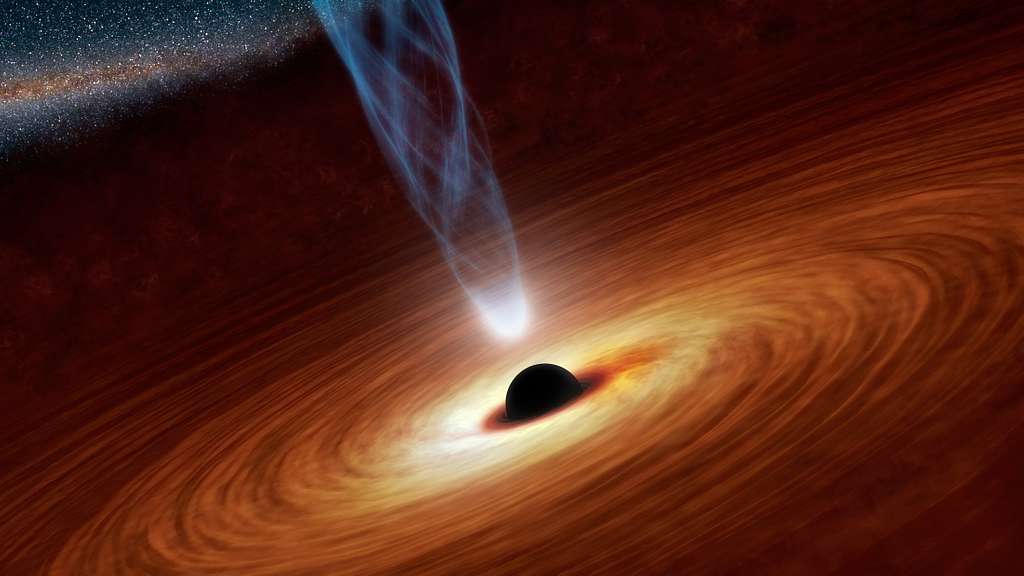Over the past several decades, black holes have continued to pique the interest of both scientists and the general public. Astronomers and physicists are still baffled by the mysterious cosmic creatures known as black holes, which are distinguished by the massive gravitational pull they exert. The study of black holes raises a number of fundamental questions, one of which is the density of black holes. When compared to other objects in the universe, how dense is a black hole, and how does this density compare to other things? Allow me to introduce you to the fascinating realm of black hole density.
Understanding Density
Before delving into the specifics of what a black hole’s density entails, let’s first clarify what density actually means. The amount of mass that can be packed into a certain volume is referred to as the substance’s density. The formula for determining it is to divide the mass of an object by its volume. In layman’s words, it tells us the degree to which matter is packed into a particular area.
Calculating the Density of a Black Hole:
Black holes are produced from the leftovers of huge stars that have run out of nuclear fuel and experienced the process of gravitational collapse after their size caused them to collapse in on themselves. A region of infinite density that is known as a singularity is created when the core of the star collapses as a result of the massive gravitational force exerted by the star during this process. At this point, though, our understanding of physics completely falls apart, and the singularity itself is cloaked in mystery. When talking about the density of a black hole, therefore, we speak to the density of the event horizon of the black hole.
After passing through the event horizon, nothing, not even light, can escape the gravitational attraction of the black hole. This is the barrier that defines the event horizon. The mass of the black hole has a decisive bearing on the size of the event horizon that surrounds it. Larger black holes have larger event horizons. It is necessary to first know the mass and volume of a black hole before attempting to compute its density.
Mass
The density of a black hole is directly proportional to its mass, so understanding how much matter a black hole contains is essential. There is a wide range of possible masses for black holes, from just a few times that of our Sun to billions of times that of our Sun. The movement of nearby objects, such as stars or gas, as they are affected by the gravitational pull of a black hole is the method that is used most frequently for determining the mass of a black hole.
Volume
Determining the volume of a black hole is not an easy undertaking due to the complexity of the phenomenon. The singularity at the heart of a black hole challenges our existing knowledge of physics, as was indicated earlier in this paragraph. Because of this, the volume of a black hole is thought to be extremely small or, more accurately, to be zero.
Density
The density of a black hole is technically thought to be infinite at the singularity due to the fact that we are unable to calculate the volume of a black hole. On the other hand, bringing it up in a conversation about the density of the event horizon yields some really interesting insights. You may get the density of the event horizon by dividing the mass of the black hole by the area of its event horizon. This will give you the density of the event horizon.
Comparing Black Hole Density
Let’s compare the density of a black hole to that of some other items in the universe so that we may better understand it. For example, the density of a stellar black hole, which normally has a mass that is a few times that of our Sun, can be many orders of magnitude higher than that of ordinary matter. These black holes typically have a mass that is a few times that of our Sun. Because of this, the resulting entity has an extremely little volume but an enormous gravitational field.
Having said that, it is vital to keep in mind that density by itself does not give the full picture. In addition to its density, a black hole’s gravitational effects are influenced not just by its mass and size but also by its overall size. When comparing things of comparable quantities or dimensions, the concept of density becomes significantly more meaningful.
In conclusion, one of the most intriguing aspects of these mysterious cosmic enigmas is the density of a black hole. The singularity that sits at the heart of a black hole has an infinite density, but the density of the event horizon varies depending on the mass of the black hole as well as the size of the event horizon. Black holes are characterized by an unusually high mass density packed into a relatively tiny space, which gives birth to the amazing gravitational qualities they possess. To have a better understanding of the fundamental principles of space, time, and gravity, it is necessary to have a firm grasp on the concept of black hole density.
![]()
